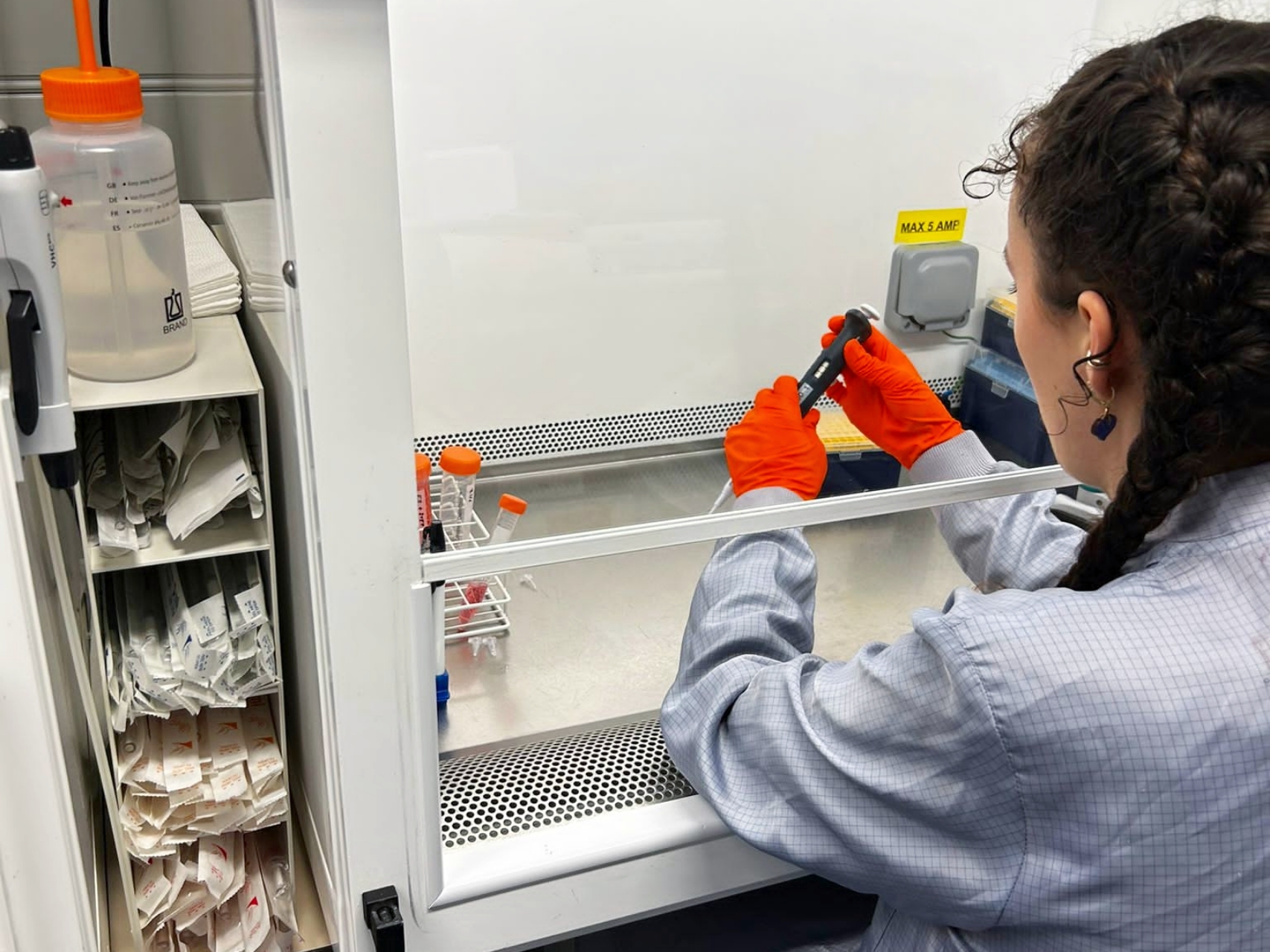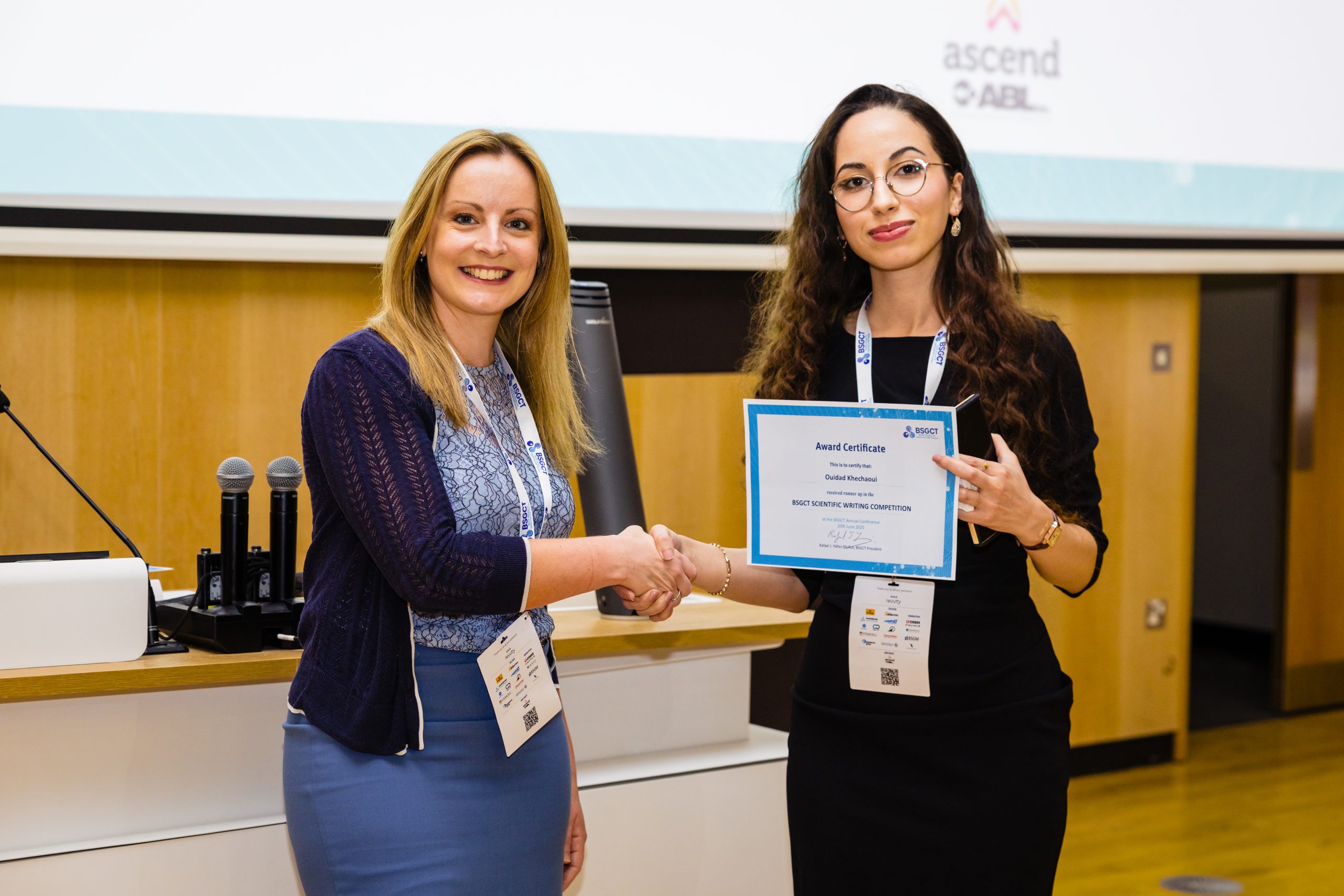Gene-ious at Work: Editing the Future for Patients with Sickle Cell Disease By Lucy Williams, PhD…

Researcher Spotlight: Grace Rachel Humphreys
Biography:
Grace is a final year BSc Medical Sciences and Engineering student at University College London (UCL) and is completing her thesis at the UCL Centre for Biomaterials in Surgical Reconstruction and Regeneration. Alongside her studies she is serving as President of MedTech UCL, the largest student-run medical technology society in Europe.
Can you tell us about a recently awarded grant?
Last summer I spent seven weeks with The Francis Crick Institute’s Tissue Regeneration and Clonal Evolution Laboratory led by Dr Foad J Rouhani. I am very thankful to the BSGCT for awarding me their Undergraduate Research Bursary to support me in undertaking a project entitled “Determining the optimal formulation of lipid nanoparticles (LNPs) for hepatocyte transfection” during this placement. With training from the Rouhani lab, I learned skills such as culturing and differentiating induced pluripotent stem cells, generating lipid nanoparticles, as well as key analytical laboratory techniques including qPCR and immunofluorescence. I strongly believe in learning by doing and it was very rewarding to see my fluency with these skills improve over the placement – especially performing cell culture in a safety cabinet, which was much more technically difficult then I had originally thought.
This project was undertaken to optimise the design and generation of LNPs to improve their effective and safe delivery of mRNA to human liver cells (hepatocytes). These LNPs are tiny structures comprised of different fats (lipids) whose composition influences how well the LNPs perform their function of delivering cargo to cells in the body. Determining the best combination of these lipids to deliver genetic material encoding enhanced green fluorescent protein (eGFP) to hepatocytes, without causing toxicity, was the goal of this project.
The experience was certainly fantastic preparation for my future academic endeavours, confirming my desires to hopefully attain a Master’s degree and PhD someday. Thanks to the kindness and patience of the members of the Rouhani lab, and the BSGCT’s generous bursary, I left inspired and excited about pursuing a career in science and confident in my next steps.
What do you like about the scientific community in your institute?
It has been a personal dream of mine to get to work at The Francis Crick Institute. My highlight of the placement with the Rouhani lab was seeing the day-to-day life of scientists; how experiments are created, busy schedules organised, and problems handled, are all integral to performing successful research. Being situated in The Crick, I cannot envisage a lab better placed to have showed me this and properly introduced me to the world of biomedical research at such a large and diverse scale.
In my first week I attended a talk by Nobel laureate Martin Chalfie who was awarded the prize for his contribution to “the discovery and development of the green fluorescent protein”. This set a great tone for my summer project where I would be working with a version of this protein. Over the rest of my time there I was lucky enough to attend a range of other talks and events, I especially enjoyed listening to speakers at the Crick’s weekly Cancer Interest Group seminars. Another unique experience is that my time at the Institute overlapped with the Japanese Emperor’s State Visit to the UK; it was so lovely to witness him visit the Crick and highlighted the importance of international collaboration for successful scientific innovation to me.
What got you interested in this field of research?
During my studies at UCL, I have developed a particular interest in regenerative medicine, particularly tissue engineering, as well as targeted-drug delivery. The Rouhani lab’s mission, to understand the mechanisms behind organ regeneration and apply such understanding to develop new therapeutics, aligns very closely with my own interests. This is why I reached out to the lab expressing my desire to work with them as a summer student. The liver has immense regenerative potential so through studying its developmental biology, we can accrue novel insights which could inform the development of viable regenerative therapeutics. Since finishing the placement, I am now completing my final undergraduate year at UCL and studying elective modules such as “Applied Tissue Engineering”, “Stem Cell Therapies”, and “Advanced Materials, Devices, and Manufacturing Processes for Regenerative Medicine” which are only furthering my fascination with this area of research.
What advantages brought to you being part of the BSGCT community?
The BSGCT’s Undergraduate Research Bursary is an incredible opportunity for students to access transformative learning experiences. Completing a research project, thanks to the bursary funding, was a thoroughly enjoyable journey of growth. It has been instrumental in helping me prepare to carry out an independent research project as part of my final year studies at UCL, as well as to make competitive graduate applications with the confidence that I love academic research and want to continue to pursue it. Thank you BSGCT!



